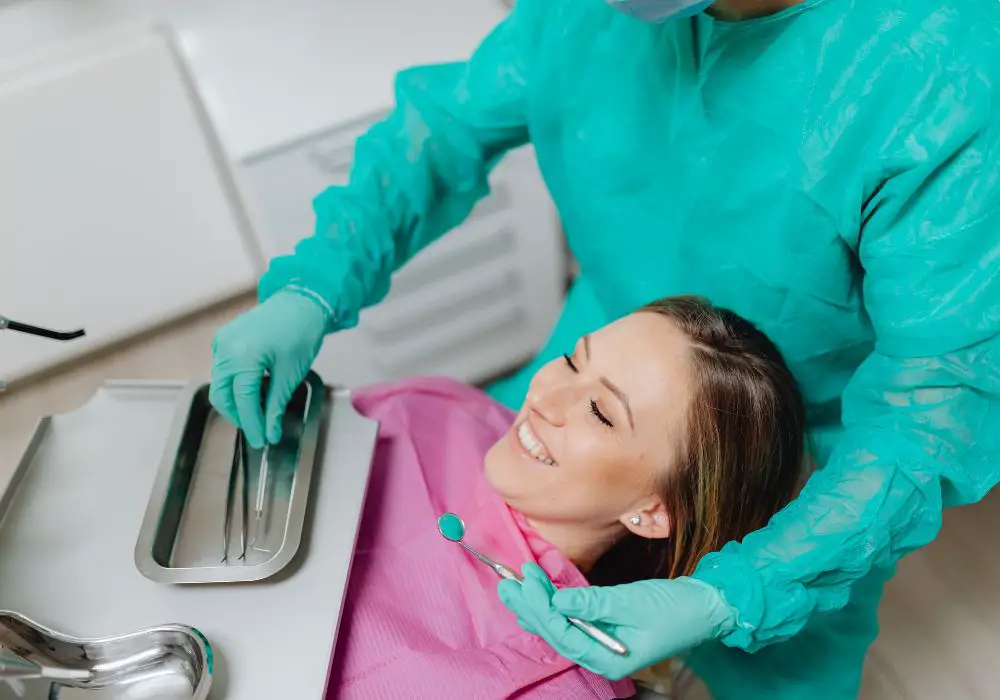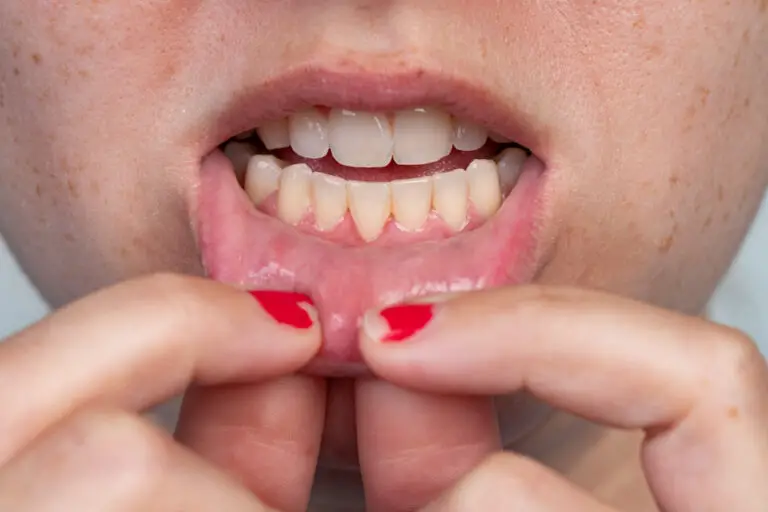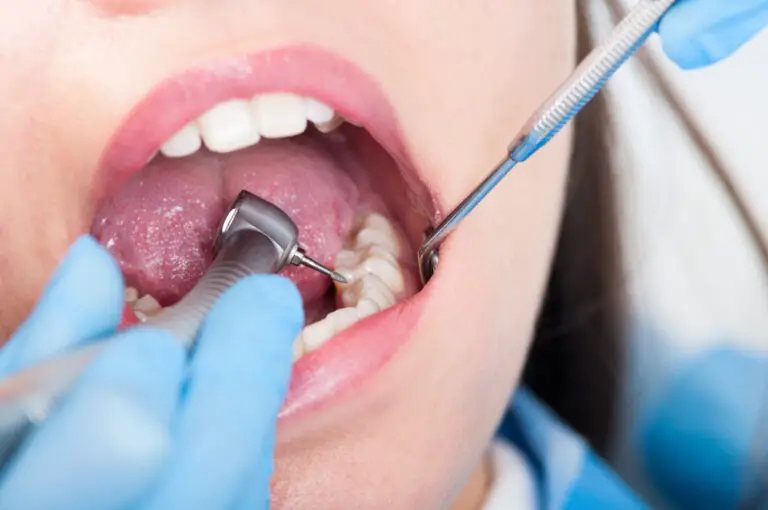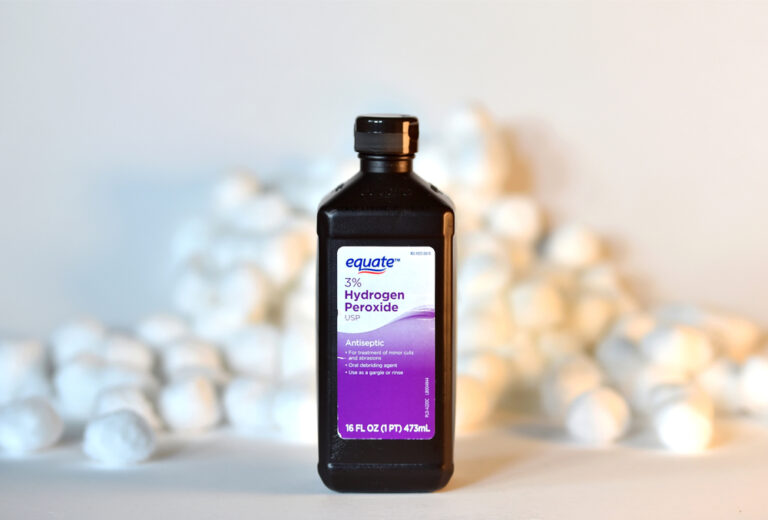Are you wondering how soon you can eat after wisdom teeth removal? It’s a common question that many people have after undergoing this procedure. Wisdom teeth removal is a type of oral surgery that involves the extraction of one or more wisdom teeth. It’s a routine procedure that is typically done under local anesthesia, but recovery can take some time.
After the surgery, your mouth will be numb, and you’ll need to wait until the anesthesia wears off before eating or drinking anything. Once the numbness subsides, you can begin to drink liquids, but you should avoid using a straw as the suction can dislodge the blood clot that forms over the extraction site. It’s recommended that you wait at least 24 hours before attempting to eat solid foods, and even then, you should stick to soft, easy-to-chew foods that won’t irritate the extraction site.
Understanding Wisdom Teeth Removal
If you have been advised to have your wisdom teeth removed, it is normal to feel nervous or unsure about the procedure. Wisdom teeth removal is a common dental surgery that involves the extraction of one or more of the four permanent adult teeth located at the back corners of your mouth on the top and bottom. Here are a few things you should know about wisdom teeth removal:
Why Wisdom Teeth Removal is Necessary
Wisdom teeth, also known as third molars, typically emerge between the ages of 17 and 25. However, not everyone develops wisdom teeth, and not all wisdom teeth require removal. When wisdom teeth grow in, they can cause pain, infection, or other dental problems. Some common reasons for wisdom teeth removal include:
- Impacted wisdom teeth: Wisdom teeth that do not have enough room to grow properly and become trapped in the jawbone or gums.
- Crowded teeth: Wisdom teeth that push against other teeth, causing them to become misaligned or crooked.
- Gum disease: Wisdom teeth that are difficult to clean and become infected or inflamed.
The Wisdom Teeth Removal Procedure
Wisdom teeth removal is a surgical procedure that typically takes about an hour to complete. Before the procedure, your dentist or oral surgeon will administer local anesthesia to numb the area around your wisdom teeth. You may also receive sedation to help you relax and feel more comfortable during the procedure.
During the procedure, your dentist or oral surgeon will make an incision in your gums to access your wisdom teeth. They will then remove the teeth and any surrounding tissue or bone that may be obstructing the extraction. After the teeth are removed, your dentist or oral surgeon will stitch the incision closed and place gauze over the extraction site to help stop bleeding.
Recovery After Wisdom Teeth Removal
After wisdom teeth removal, it is normal to experience some discomfort, swelling, and bleeding. Your dentist or oral surgeon will provide you with detailed instructions on how to care for your mouth and what to expect during the recovery period. In general, you should:
- Rest for the first few days after the procedure.
- Apply ice packs to your cheeks to help reduce swelling.
- Avoid smoking, drinking through a straw, and consuming hot or spicy foods for at least 24 hours after the procedure.
- Follow a soft food diet for the first few days after the procedure and gradually introduce solid foods as you feel comfortable.
It is important to follow your dentist or oral surgeon’s instructions carefully to ensure a smooth and speedy recovery after wisdom teeth removal.
Immediate Post-Operation Period

After getting your wisdom teeth removed, it is important to know what to expect during the immediate post-operation period. During this time, you will experience some discomfort, swelling, and bleeding. To ensure a smooth recovery, it is important to follow the instructions provided by your oral surgeon.
First Hour After Surgery
During the first hour after surgery, it is important to keep the gauze pads in place on the surgical site, biting down firmly to help stop any bleeding. You should avoid talking, rinsing, or spitting during this time as it may cause bleeding. You should also avoid drinking hot liquids or using a straw, as the suction may cause the blood clot to dislodge.
First 24 Hours After Surgery
For the first 24 hours after surgery, it is recommended to rest and avoid any physical activity. You should also avoid smoking and drinking alcohol. To help reduce swelling, you can apply an ice pack to your cheeks for 10-20 minutes at a time with 20-minute breaks in between. It is important to keep your head elevated while sleeping to help reduce swelling.
During the first day, you should only consume soft and cool foods such as yogurt, ice cream, and smoothies. Avoid hot and spicy foods, as well as acidic and crunchy foods, as they may irritate the surgical site. Drinking plenty of water is also important to help keep your mouth clean and hydrated.
By following these guidelines during the immediate post-operation period, you can help ensure a smooth and successful recovery. Remember to always follow the instructions provided by your oral surgeon and contact them if you have any concerns or questions.
Eating After Wisdom Teeth Removal
After getting your wisdom teeth removed, it’s important to take care of yourself and follow your dentist’s instructions to ensure proper healing. One of the most important things to consider is what you eat in the days following the procedure. In this section, we’ll discuss the recommended foods to eat and the foods to avoid.
Recommended Foods
Following wisdom teeth removal, it’s important to stick to soft, easy-to-eat foods that won’t irritate the extraction site or get stuck in the area. Here are some good options:
- Smoothies and milkshakes
- Mashed potatoes
- Applesauce
- Yogurt
- Soup (as long as it’s not too hot)
- Scrambled eggs
- Oatmeal
It’s also important to stay hydrated, so be sure to drink plenty of water and other fluids. Avoid using straws, as the sucking motion can cause dry sockets.
Foods to Avoid
There are a few foods you should avoid in the days following wisdom teeth removal to prevent irritation or infection:
- Crunchy or hard foods (such as chips or nuts)
- Spicy foods
- Acidic foods (such as citrus fruits or tomato sauce)
- Chewy foods (such as caramel or gum)
- Hot foods or drinks
It’s also important to avoid alcohol and smoking, as both can delay healing and increase the risk of complications.
By following these guidelines and sticking to soft, easy-to-eat foods, you can help ensure a smooth and speedy recovery after wisdom teeth removal.
Recovery Timeline

After wisdom teeth removal, the recovery timeline can vary depending on the individual. However, there are some general guidelines that can help you know what to expect.
First 24-48 hours
During the first 24-48 hours, it’s important to rest and avoid any strenuous activities. You may experience some bleeding, swelling, and discomfort during this time. To help with these symptoms, your dentist or oral surgeon may recommend:
- Applying an ice pack to your cheek for 10-20 minutes at a time
- Taking pain medication as prescribed
- Rinsing your mouth gently with saltwater
You should also avoid using straws, smoking, or spitting during this time, as these actions can dislodge the blood clot and delay healing.
Days 2-3
After the first 24-48 hours, you can start to introduce soft foods into your diet. Foods like mashed potatoes, yogurt, and soup are good options. However, you should still avoid foods that are crunchy, chewy, or spicy, as these can irritate the extraction site.
Days 4-7
By days 4-7, you should start to feel more comfortable and be able to eat a wider variety of soft foods. You may also be able to start brushing your teeth gently around the extraction site.
Days 8-10
Around days 8-10, the swelling should start to go down, and you may feel almost back to normal. However, it’s important to continue to take care of the extraction site and avoid any hard or crunchy foods until your dentist or oral surgeon gives you the all-clear.
Overall, it can take up to two weeks to fully recover from wisdom teeth removal. By following your dentist or oral surgeon’s instructions and taking care of yourself, you can ensure a smooth recovery and get back to your normal routine as soon as possible.
Potential Complications
While wisdom teeth removal is a common procedure, it is not without risks. Some potential complications that you may experience after the surgery include:
Dry Socket
Dry socket is a condition that occurs when the blood clot that forms in the socket where the tooth was removed becomes dislodged or dissolves before the wound has healed. This can cause intense pain and delay the healing process. To prevent dry socket, avoid smoking, drinking through a straw, or spitting for at least 24 hours after the surgery.
Infection
Infection is another possible complication that can occur after wisdom teeth removal. Symptoms of infection include fever, swelling, and discharge from the wound. To reduce the risk of infection, follow your dentist’s instructions for aftercare and keep the wound clean.
Nerve Damage
Wisdom teeth removal can sometimes cause nerve damage, which can result in numbness, tingling, or a burning sensation in the lips, tongue, or cheeks. This is a rare complication, but it can be permanent in some cases.
Bleeding
Bleeding is normal after wisdom teeth removal, but excessive bleeding can be a sign of a problem. If you experience persistent bleeding, contact your dentist immediately.
Sinus Complications
In some cases, the removal of upper wisdom teeth can cause sinus complications. This can happen if the tooth roots are close to the sinus cavity. Symptoms of sinus complications include pain, pressure, and congestion in the sinuses.
It is important to follow your dentist’s instructions for aftercare to minimize the risk of complications. If you experience any of these symptoms, contact your dentist right away.
When to Contact Your Dentist

During your wisdom teeth removal recovery, it’s important to keep an eye out for any signs of complications. While some pain and discomfort is normal, there are certain symptoms that you should not ignore. If you experience any of the following, contact your dentist immediately:
- Excessive bleeding: Some bleeding is normal after wisdom teeth removal, but if you’re bleeding heavily and can’t get it to stop, you need to seek medical attention right away.
- Fever: A low-grade fever is common after surgery, but if your temperature goes above 101 degrees Fahrenheit, it could be a sign of infection.
- Swelling: Some swelling is normal after wisdom teeth removal, but if it’s severe and doesn’t improve within a few days, it could be a sign of infection.
- Difficulty swallowing or breathing: If you’re having trouble swallowing or breathing, it could be a sign of a serious complication and you should seek medical attention immediately.
- Numbness or tingling: If you experience numbness or tingling in your lips, tongue, or chin, it could be a sign of nerve damage and you should contact your dentist right away.
- Pus or discharge: If you notice pus or discharge coming from the extraction site, it could be a sign of infection and you should contact your dentist.
Remember, it’s always better to be safe than sorry. If you’re experiencing any symptoms that concern you, don’t hesitate to contact your dentist. They can help you determine if you need additional treatment or if your symptoms are normal parts of the healing process.
Frequently Asked Questions
How long after wisdom teeth removal can I smoke?
It is recommended that you avoid smoking for at least 72 hours after wisdom teeth removal to allow the blood clot to form and promote healing. Smoking can delay the healing process and increase the risk of complications such as dry socket.
How long after wisdom teeth removal can I drink alcohol?
It is best to avoid drinking alcohol for at least 24 hours after wisdom teeth removal, as alcohol can interfere with the healing process and increase the risk of bleeding. It is also important to avoid using a straw, as the suction can dislodge the blood clot and cause dry socket.
What can I eat 7 days after tooth extraction?
After 7 days, you can start to introduce soft, solid foods into your diet, such as scrambled eggs, mashed potatoes, and cooked vegetables. Avoid hard, crunchy, or spicy foods that can irritate the extraction site.
What can I eat 2 weeks after wisdom teeth removal?
After 2 weeks, you can start to eat a wider variety of foods, including meats, fruits, and vegetables. However, it is still important to avoid hard, crunchy, or sticky foods that can irritate the extraction site and delay healing.
How long after wisdom teeth removal can I eat ice cream?
You can eat ice cream as early as 24 hours after wisdom teeth removal, as long as it is soft and not too cold. Cold temperatures can slow down the healing process and increase the risk of bleeding.
What foods can you eat 2 days after wisdom teeth removal?
For the first 2 days after wisdom teeth removal, it is best to stick to a soft, liquid diet to avoid irritating the extraction site. This can include smoothies, yogurt, soup, and mashed potatoes. Avoid hot, spicy, or acidic foods that can cause pain and discomfort.






